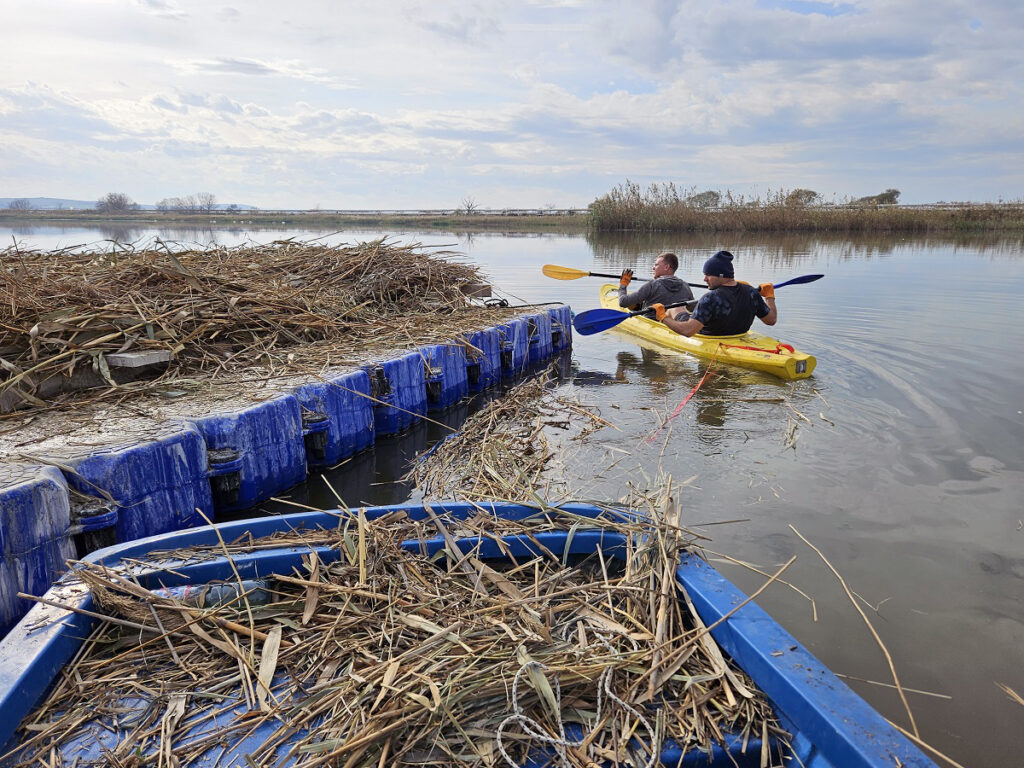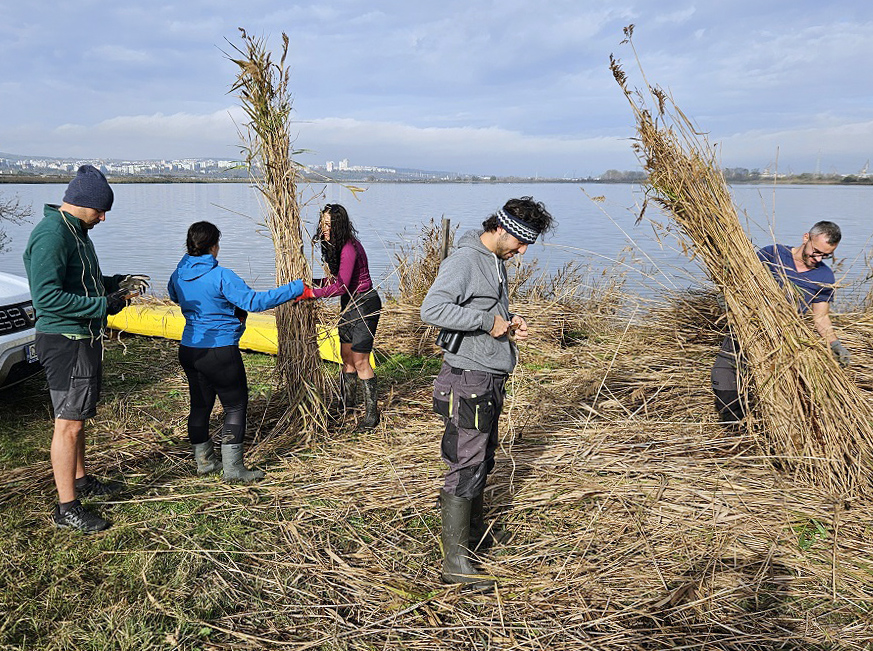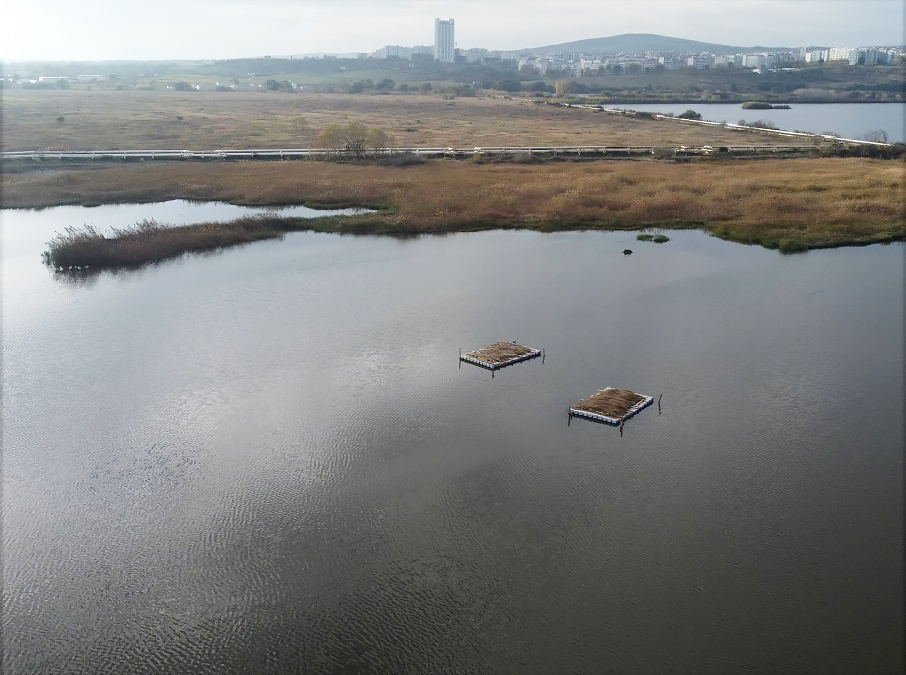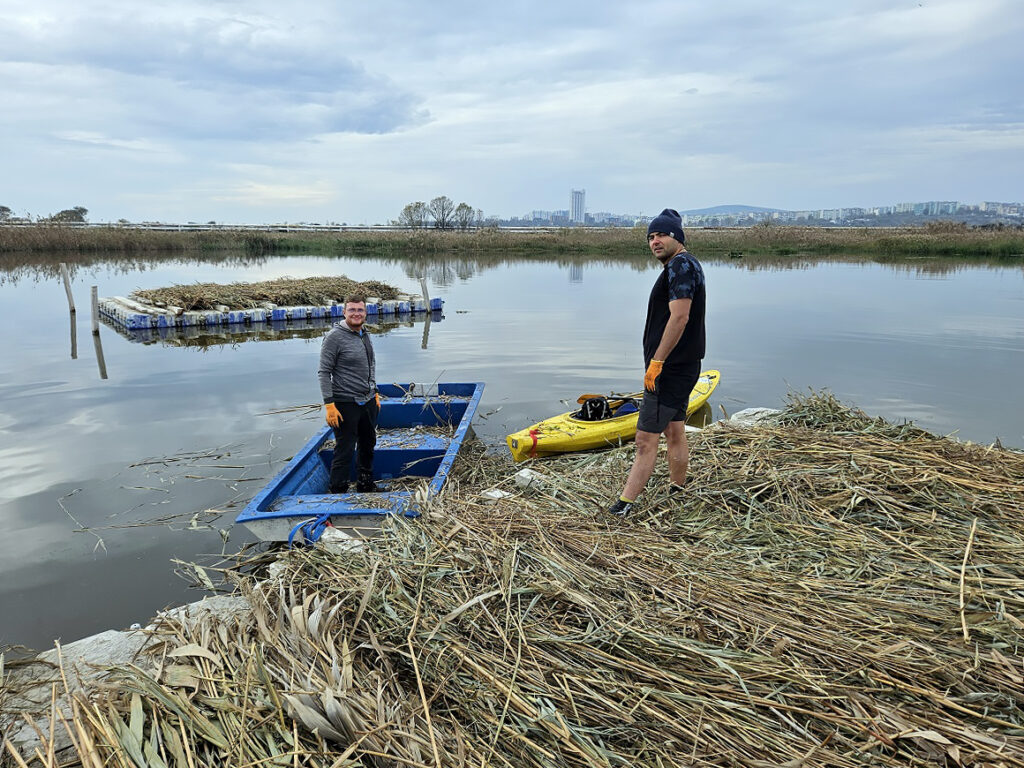In late November, the team of experts and volunteers from the Bulgarian Society for the Protection of Birds (BSPB) successfully executed various activities aimed at enhancing the nesting conditions for the protected Dalmatian Pelican within the “Mandra – Poda” Special Protection Area (BG0000271).

In 2021, the team constructed two floating platforms, totaling an area of 80 sq.m., within the oxidation ponds of “LUKOIL Neftochim Burgas” AD. These ponds serve as one of the preferred resting spots for Dalmatian Pelicans in the Burgas Lakes region, offering minimal human disturbance, a crucial factor for this species. Fortunately, the pelicans swiftly and enthusiastically embraced the new floating platforms, quickly turning them into favored roosting and resting spots for both Dalmatian and Great White pelicans.
To maximize their appeal to the birds before the upcoming breeding season, the team conducted a technical inspection this winter. They also managed to mow a sufficient amount of reeds to cover the floating platforms, making them closely resemble reed islands – one of the preferred nesting locations for Dalmatian pelicans. Additionally, the team performed light repair work to enhance the platforms’ strength and stability further.


“We are delighted to witness that, in the subsequent days, dozens of Dalmatian Pelicans and Great White Pelicans have chosen to roost on the platforms,” says Svilen Cheshmedziev from BSPB. “This is a positive indicator, and in the upcoming months, we will maintain a vigilant watch over the pelicans and the platforms in the area. The last confirmed information about the nesting of Dalmatian Pelicans in the region dates back to as far as 1948. Our team remains hopeful that soon one of Burgas’ symbols will once again be part of the diverse array of bird species nesting in the Burgas lakes!”
BSPB extends its heartfelt gratitude to all the volunteers who contributed to this challenging task!
The activities related to the conservation of the Dalmatian pelicans are carried out within the framework of the “Pelican Way of LIFE“ initiative (LIFE18/NAT/NL/000716), funded by the LIFE Programme of the European Union and Arcadia Foundation, and with the assistance in Bulgaria of the Whitley Fund for Nature.
